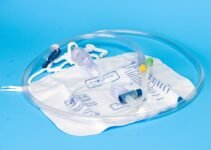Have you ever heard about the toxemia of pregnancy? It is defined as pregnancy-induced hypertension. It’s important to know how to identify the first signs and get treatment to prevent it from becoming harmful to the mother and child. Keep reading to know more about this disorder.
Toxemia during pregnancy is also called pre-eclampsia and it is a rare condition that will affect about seven to eight percent of women [1] during the pregnancy. You could develop mild or severe toxemia after about twenty weeks of pregnancy. If it is your first pregnancy or you are carrying multiple babies, preeclampsia could occur as soon as the placenta starts to develop. Pre-eclampsia can potentially develop into Eclampsia, characterized by the onset of seizures. HELLP is the abbreviation for hemolytic anemia, elevated liver enzymes and low platelet count. HELLP syndrome is a severe form of preeclampsia occuring in 2-4% of pregnant women with this disease. Women who get pregnant over forty and teenage mothers are prone to develop preeclampsia.
Symptoms of Toxemia in Pregnancy
You can be affected by two types of pre-eclampsia, the mild or severe form. Both types can lead to unnecessary problems which might harm mother and child. For this reason, it is important to monitor any changes in your body to detect any health issue during the initial stages. These are some of the symptoms to look for in order to know if toxemia is present in your body.
Signs & symptoms of mild disease:
- Protein in urine
- Increased blood pressure levels which exceed 140/90
- Weight gain
- Fluid retention which cause swelling of hands, face, and feet
- Very fast reflex responses (Hyper-reflexia)
Severe symptoms:
- Nausea
- Headache
- Vomiting
- Fever
- Diarrhea
- Excessive and continuous acid reflux
- Myalgia
- Blood in urine
- Vomiting blood
- Double or blurred vision
- Reduced urine output
- Gastric pain
- Seizures
- Mental disorientation
- Convulsions
- Lower levels of amniotic fluid
- Restricted Intra-uterine growth
If left untreated, toxemia can cause liver and kidney damage as well as be a potentially terminal disease for both mother and baby. The consequences of the condition are preterm delivery, rupture of placenta, fetal growth limitations, pulmonary edema, maternal renal failure, maternal stroke, emergency delivery, elevated perinatal mortality, diminished uteroplacental perfusion, maternal convulsions, or severe situations such as coma and death.
Preeclampsia Diagnosis
As mentioned above, preeclampsia can severely affect the fetus and be a fatal disease. It is vital to detect the condition as early as possible and get treated accordingly. Early detection and the right treatment can reduce complications and risks during delivery. The best way for you to detect the condition as early as possible is to visit the gynecologist regularly. Your doctor might do a urine test to check the level of protein in order to confirm the toxemia condition. If the urine test shows over 300 mg of protein in a 24 hour urine sample, this would indicate that you have the condition.
If toxemia diagnosis is confirmed, your doctor might recommend complete bed rest as well as prescribe some mild hypertensive medications and magnesium sulfate to lower seizures. So far, the only toxemia cure is the delivery of the baby. If your doctor thinks that the baby can survive after thirty-four weeks of pregnancy, then induced delivery will be recommended.
How You Can Prevent Toxemia in Pregnancy
There are no decisive ways for anyone to prevent toxemia because the exact cause is still unknown. However, you could do things like controlling your diet and exercise to help fight off the symptoms. The following are some of the preventive measures that you can take to monitor your blood pressure and stay healthy during your pregnancy:
- Drink seven to eight glasses of water daily to keep your body hydrated;
- Avoid eating fried and junk foods;
- Do light exercises every day;
- Use pillows to keep your legs elevated during sleep;
- Avoid stress by doing things like meditation;
- Get enough rest;
- Avoid alcoholic drinks;
- Reduce your intake of caffeinated beverages and salt.
The only way that you can reduce the potential damages of preeclampsia is to ensure that you are maintaining a well-balanced diet and in good shape to stay healthy. You should also get regular checkup, and monitor your blood pressure regularly. If possible, you could buy a machine to measure your blood pressure levels at home.
Conclusion
Toxemia in pregnancy can be detrimental to both your health and that of your baby, whether it’s mild or severe, because it restricts the flow of blood to the placenta. If the placenta is ruptured, you might start to have seizures which might prove to be fatal to you and your baby. Be sure to visit your doctor or gynecologist as early as possible if you believe that you have toxemia or have noticed any of the signs mentioned above.
References



